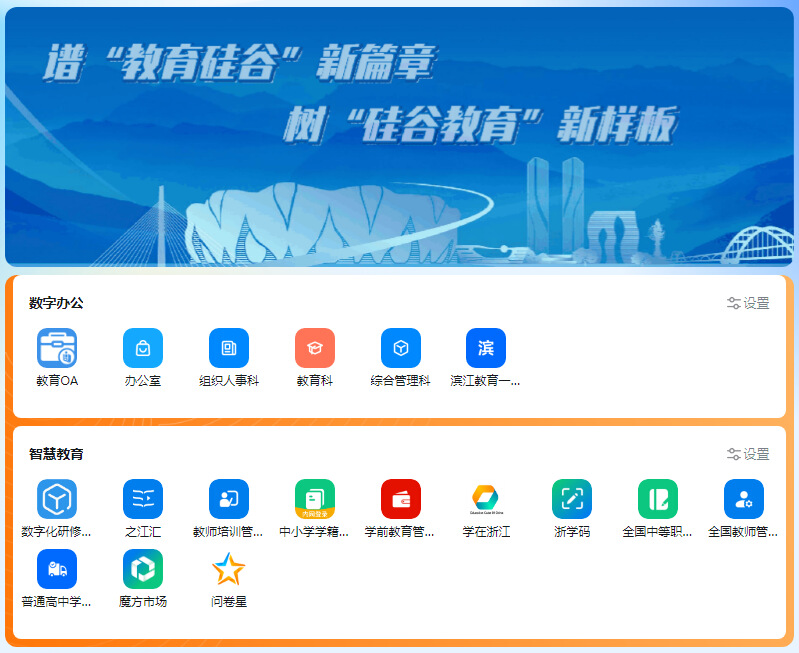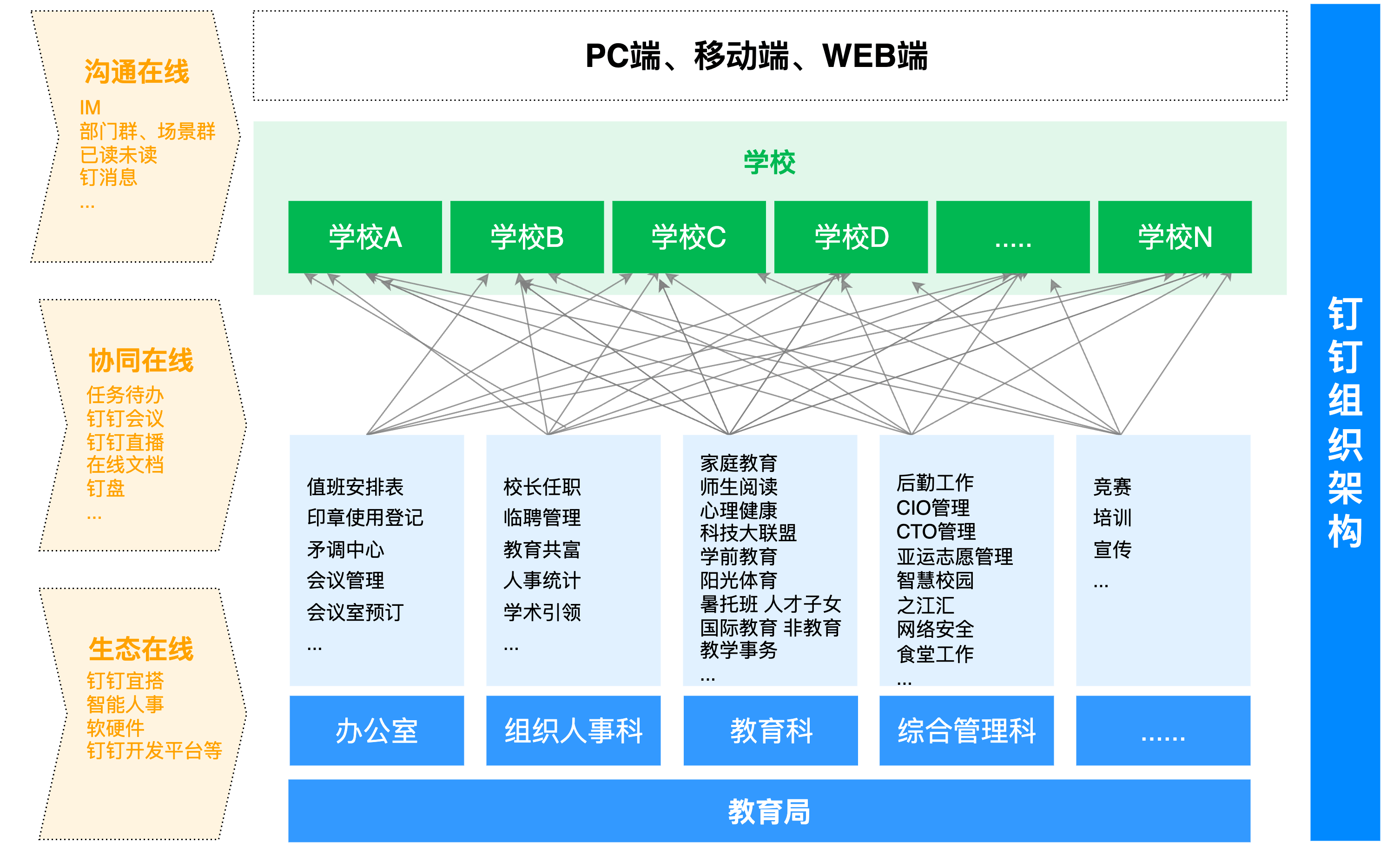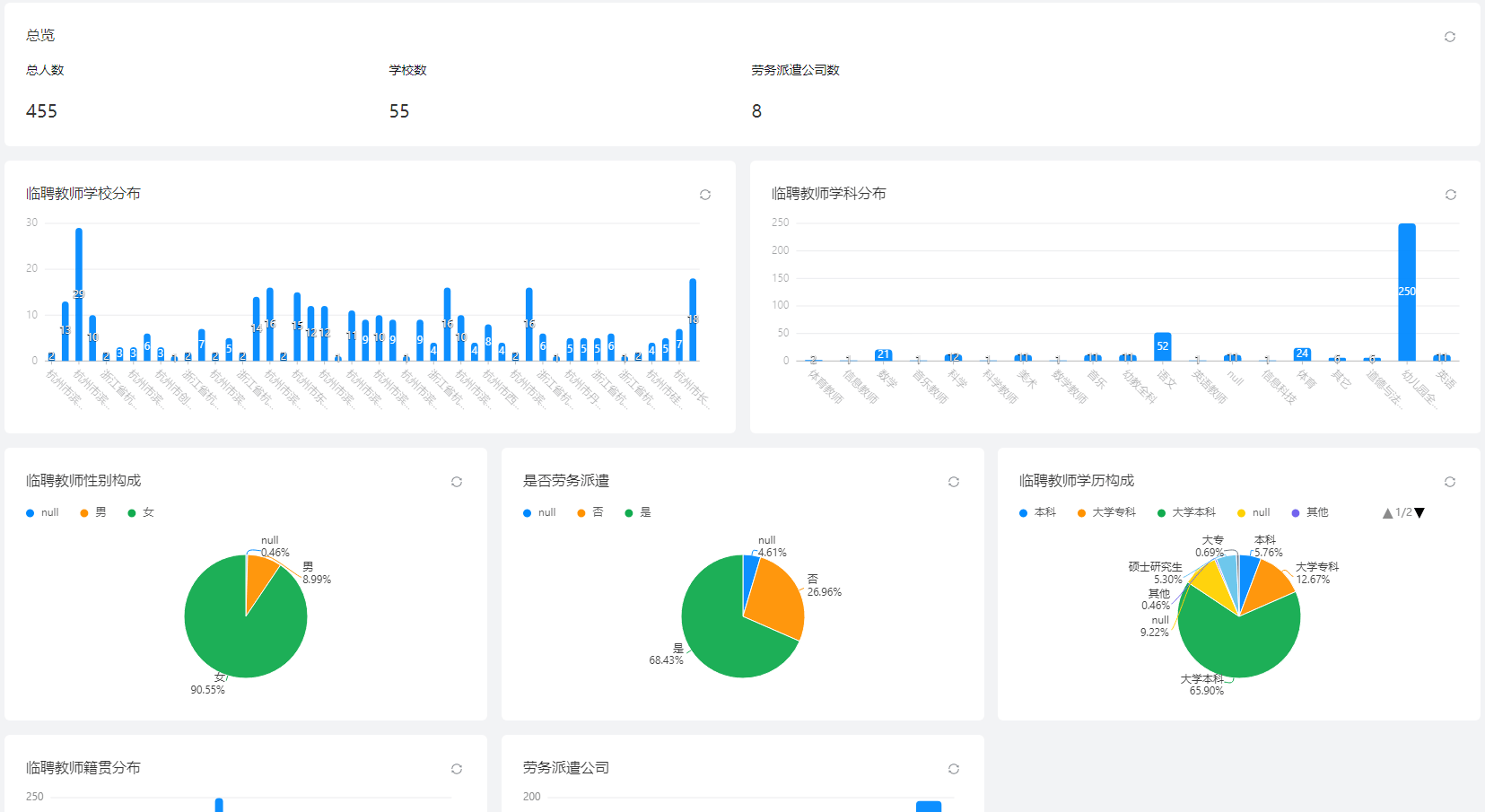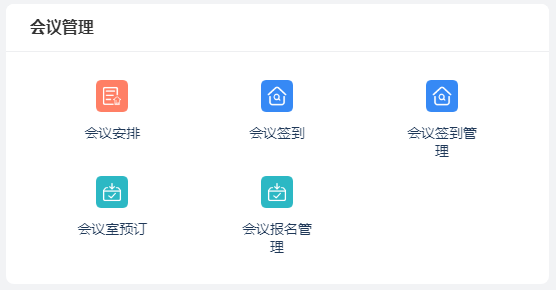Benefiting from the fact that DingTalk originated in Hangzhou, the Education Bureau of Binjiang District and its subordinate schools under its jurisdiction have conducted extensive and comprehensive cooperation and explorations with DingTalk, vigorously promoting digital teaching and education innovation reforms. A new model of "educational Silicon Valley" has been formed where digitalization leads the construction of a strong district of modern education. It has been recognized as an outstanding unit for the Ministry of Education's "Information Technology Support for Comprehensive Quality Evaluation of Students Pilot Work," as well as the Zhejiang Province Smart Education Comprehensive Pilot Zone, the Zhejiang Province Technology-empowered Smart Education Pilot Zone, and the Zhejiang Province Elementary Student Comprehensive Evaluation Reform Pilot Zone.
"For education today, digitalization is not lacking in advanced concepts but rather in continuous practical innovation projects where ideas can be put into action immediately and iterated quickly."
——Xu Huabin, Digital Education Director of Binjiang District Education Bureau

The Education Bureau of Hangzhou High-Tech Industrial Development Zone (Binjiang) (hereinafter referred to as Binjiang District Education Bureau) is a working department of the Binjiang District Government of Hangzhou, primarily responsible for educational affairs within Binjiang District.

Benefiting from the fact that DingTalk originated in Hangzhou, the Binjiang District Education Bureau and its subordinate schools have conducted extensive and comprehensive cooperation and exploration with DingTalk, vigorously advancing digital teaching and education reform and innovation, forming a new "education Silicon Valley" pattern where digitalization leads the building of a strong modern education district. It has been rated as an outstanding unit in the Ministry of Education's "Information Technology-supported Comprehensive Quality Evaluation of Students' Pilot Work" and has become the Zhejiang Province Smart Education Comprehensive Pilot Area, the Zhejiang Province Technology-empowered Smart Education Pilot Area, and the Zhejiang Province Primary Students' Comprehensive Evaluation Reform Pilot Area.
Digitalization work is a systems engineering project. The Binjiang District Education Bureau has accurately positioned the development direction of digitalization, defined the objectives, and completed systematic planning. In this planning, it adheres to the principle of "applicative priority and service supremacy," driving the infrastructure database called "Education Magic Cube," the DingTalk application database, a one-code-pass platform, and a structured application framework with a demand-driven approach. Through such applications, various images and governance dashboards have been established. During the process of construction and application, the focus has been on the core ideas of "a database, a platform, multiple screens, and N applications." By leveraging the DingTalk platform, the Education Bureau coordinates collaboration within the district and its school groups, giving priority to operational demands, improving practical application and operation maintenance, focusing on enhancing governance effectiveness, optimizing service quality, reforming teaching methods, and promoting balanced, high-quality education. Scenarios such as entire-domain intelligent governance, digital society, five-education approaches, and teaching transformation have been created, with digitalization supporting and leading the "Education Silicon Valley" initiatives.

DingTalk Achieves Organization Online
Multidimensional and Three-Dimensional Management
Based on organizational online status, DingTalk brings about communication online, collaboration online, business online, and ecosystem online, which have transformed the traditional two-dimensional point-to-point management into a more multidimensional and three-dimensional management of point-to-point, point-to-plane, and plane-to-point interactions.
As well as transcending the limitations of time and location, the new system also incorporates hierarchy and permissions, dividing management's granular level more finely. It connects the business activities of individuals in different roles and positions, making the management of the Education Bureau more three-dimensional.

Low-Code Technology Helps Business Implementation
Enhancing Professionals’ Work Efficiency
As the director of digital education within the Binjiang District Education Bureau, Teacher Xu Huabin has always actively understood products across various platforms in the market that can effectively integrate into educational, teaching and business operations. He has been closely following the development and maturation of DingTalk’s YiDa low-code platform and ultimately chose YiDa to build an online management system for the entire district's education system.
The most labor-intensive work in the education bureau involves collecting and summarizing information from various schools. By combining simple coding with DingTalk's YiDa low-code application, Teacher Xu created an information gathering system in two days, enabling the execution of tasks such as initiating a form -> selecting the receiving unit -> filling in the content to be collected, allowing for information gathering across all subordinate schools. Additionally, through reports, feedback statuses from relevant schools can be viewed in real-time.
01. Asian Games Volunteer Management
The organizing of the 2023 Hangzhou Asian Games required the recruitment, management, and allocation of volunteers within the education system, as well as scheduling multiple volunteering events.
From the time Teacher Xu received the assignment to finalizing the content of the recruitment and gathering all necessary information—including the detailed requirements that volunteers' photos needed to be uploaded in specified formats and file names for authentication—he completed the task in just 2 days. Previously, using traditional methods to collect, modify, reconfirm, and compile this type of information would have taken up to 15 days, which was not nearly fast enough to meet the time-sensitive demands of managing volunteer activities for the Asian Games.
On a yearly basis, Teacher Xu would typically carry out more than 10 similar tasks, and using the YiDa platform saves him approximately the equivalent of two manpower’s worth of time annually. Moreover, Teacher Xu also extended the solution to benefit colleagues in other departments who performed similar tasks, significantly improving the overall work efficiency of the Education Bureau.

02. Management of Temporarily Hired Teachers
In the traditional management of temporarily hired teachers, problems such as delayed data updates and low management efficiency existed. To resolve these problems, Teacher Xu developed a management platform independently based on the requirements of the organizational personnel department by using the DingTalk YiDa platform.
➔ Staff management: Through the platform, Teacher Xu is able to monitor the staffing situation of the temporarily hired teachers in real time, ensuring that teaching resources are reasonably allocated and used.
➔ Funding Supervision: The platform enables real-time monitoring of funding related to temporary teachers to ensure the proper use and distribution of funds.
➔ Structural Optimization: Through data analysis, the platform assists Teacher Xu in optimizing the structure of the temporary teacher workforce, thereby improving teaching quality.
With this platform, the district education bureau has achieved real-time monitoring of temporarily hired teachers, significantly enhancing management efficiency. For instance, by utilizing the data analysis functionality of the platform, the education bureau can promptly identify and resolve staffing issues while optimizing the allocation of teaching resources. In addition, the real-time funds supervision ensures that funds are used reasonably, improving fund utilization efficiency and offering decision-making support for temporary staff hiring in the education bureau.

03. Meeting Management
To address the administrative requirements, the education bureau frequently organizes various meetings, including work deployment meetings, business meetings, and work report meetings. The tasks such as participant registration, check-in, and distribution of materials associated with these meetings involve heavy workloads for the conference staff. A large volume of paper is printed for meeting materials, which not only wastes resources but also burdens the environment. Additionally, once printed documents are produced, updating information becomes challenging, potentially causing discrepancies in the timeliness of information. By targeting these problems and pain points, Teacher Xu developed a "Meeting Management System" using DingTalk YiDa.
➔ Registration Management: Allows attendees to easily and conveniently register online, with the system automatically collecting participants' information and generating reports for the organizers' easy data management and analysis.
➔ Check-in Management: Allows attendees to check in by scanning a check-in code, making the process convenient and fast. The check-in speed can be improved by up to 90% compared to traditional methods, with check-in attendance displayed and updated in real time.
➔ Material Distribution: Using a digital platform, meeting materials are distributed electronically, enabling attendees to update documents during the meeting to ensure all participants always access the latest information.
➔ Real-time Analysis: The digital conference platform can count and analyze registration and check-in data in real time, giving a clear view of the conference overview.

Over the past year, based on the foundational platform, the education bureau has independently developed over 20 systems such as the "Smart Campus Creation" program and the "Activity for Enhancing Students' Digital Literacy." These systems aim to collect and analyze work-related data, visually and graphically grasp workflow dynamics, improve work efficiency, perform data diagnoses, and create data assets, thereby greatly improving work efficiency. As application scenarios gradually expand and penetrate deeper, Binjiang education, relying on DingTalk, is transitioning slowly from institutional management to process management and from experience-based management to data governance.

 English
English
 اللغة العربية
اللغة العربية  Bahasa Indonesia
Bahasa Indonesia  日本語
日本語  Bahasa Melayu
Bahasa Melayu  ภาษาไทย
ภาษาไทย  Tiếng Việt
Tiếng Việt  简体中文
简体中文